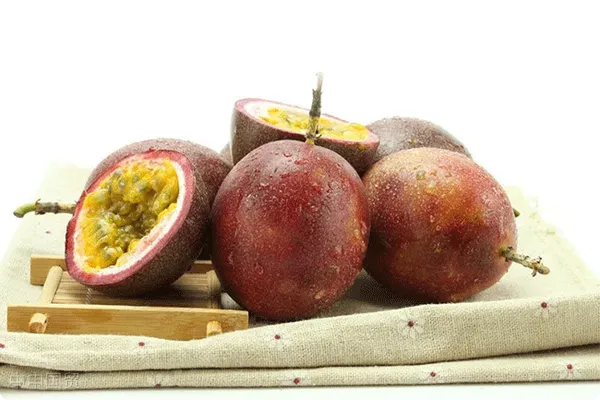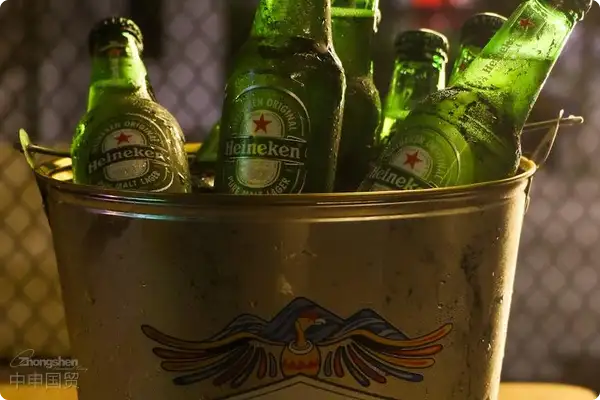- Shanghai Zhongshen International Trade Co., Ltd. - Two decades of trade agency expertise.
- Service Hotline: 139 1787 2118
II. Definition of Permitted Imported Passion Fruit

III. Permitted Origins
(2) The Law of the Peoples Republic of China on the Entry and Exit Animal and Plant Quarantine and its Implementing Regulations
(3) The Food Safety Law of the Peoples Republic of China and its Implementing Regulations
(4) The Measures for the Supervision and Administration of the Inspection and Quarantine of Imported Fruits
(5) The Protocol on Phytosanitary Requirements for the Export of Fresh Passion Fruit from Thailand to China between the General Administration of Customs of the Peoples Republic of China and the Ministry of Agriculture and Cooperatives of the Kingdom of Thailand
The passion fruits permitted to be imported into China mainly include two types: Passiflora caerulea and Passiflora edulis (purple passion fruit), with the English name Passion fruit.
At present, China only permits the import of passion fruit from the passion fruit - producing areas in Thailand.
IV. Approved Orchards and Packinghouses
The orchards and packinghouses exporting to China in Thailand need to be reviewed and filed by the Ministry of Agriculture and Cooperatives of Thailand, and at the same time be approved and registered by the General Administration of Customs of China. Before the start of trade, the Thai side needs to provide China with the list of these registrations, which will be publicized on the website of the General Administration of Customs of China.
V. Quarantine Pests of Concern in China
China is mainly concerned about the following three potential pests:
VI. Pre - export Management Requirements
The orchards and packing houses exporting to China in Thailand need to be audited and filed by the Ministry of Agriculture and Cooperatives of Thailand, and at the same time, be approved and registered by the General Administration of Customs of China. Before the trade starts, the Thai side needs to provide China with the list of these registrations and publicize them on the website of the General Administration of Customs of China.
VII. Entry Inspection, Quarantine and Handling of Non - compliance
China mainly pays attention to the following three potential harmful organisms:
(1) 可可毛色二孢菌Lasiodiplodia theobromae
(2) 大洋臀紋粉蚧Planococcus minor
(3) 雞蛋果木質化病毒Passion fruit woodiness virus
According to relevant Chinese laws and regulations, the import of fresh passion fruit from Thailand into China shall comply with the following regulations:
The passion fruits exported from Thailand to China shall be managed in strict accordance with the following requirements:
(1) Orchard Management:Good agricultural practices shall be implemented, such as having no pollution sources in the vicinity, and timely cleaning up fallen and rotten fruits. In addition, for the pests of concern to China, year - round monitoring and management shall be carried out. If pests or their corresponding symptoms are found, control measures shall be taken in a timely manner.
(2) Packing Factory Management:The processes of processing, packaging, storage and shipping shall be carried out under the quarantine supervision of the Thai side or its authorized officials. The packing factory shall be kept clean and meet relevant standards.
(3) Packaging Requirements:The packaging materials shall be clean, unused and meet the relevant phytosanitary requirements of China. Each packing box shall indicate relevant information.
(4) Pre - export Inspection and Quarantine:The Thai side shall sample and inspect each batch of passion fruits at a ratio of 2% of each batch of goods, and conduct fruit - cutting inspections on all suspicious fruits.
(5) Phytosanitary Certificate:After passing the quarantine, the Thai side shall issue a phytosanitary certificate.
(1) The Biosecurity Law of the Peoples Republic of China
The passion fruits arriving at Chinese ports shall undergo strict verification, inspection and quarantine. In case of non - compliance, China will take different measures according to the situation, including return, destruction or pest - control treatment.
The above content is sourced from the customs release.ZhongShen International TradeAs a one - stop importExport Representationservice provider, it can provide customizedimport and exportSolution. If you needforeign tradeFor import and export agency services, please feel free to contact our company for business inquiries. The consultation hotline is 139 - 1787 - 2118.
Related Recommendations
Contact Form
Category case
Contact Us
Email: service@sh-zhongshen.com
Related Recommendations
Contact via WeChat

? 2025. All Rights Reserved. 滬ICP備2023007705號-2  PSB Record: Shanghai No.31011502009912
PSB Record: Shanghai No.31011502009912









